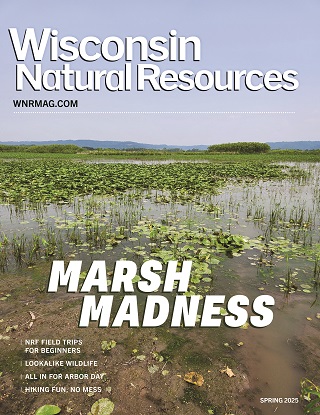Contact: Kelly Maguire, DNR State Game Farm Manager
Kelly.maguire@wisconsin.gov or 608-635-8120
DNR Pheasant Stocking Increases Hunting Opportunities This Holiday Season
Holiday Pheasant Stocking Expands To 25 State Properties
 The Wisconsin Department of Natural Resources will stock pheasant at 25 state properties in central and southern Wisconsin during the week of Dec. 20, 2021, to increase hunting opportunities throughout the holiday season.
Photo credit: iStock / dageldog
The Wisconsin Department of Natural Resources will stock pheasant at 25 state properties in central and southern Wisconsin during the week of Dec. 20, 2021, to increase hunting opportunities throughout the holiday season.
Photo credit: iStock / dageldog
MADISON, Wis. – The Wisconsin Department of Natural Resources (DNR) today announced the department will stock pheasant at 25 state properties in central and southern Wisconsin during the week of Dec. 20, 2021, to increase hunting opportunities throughout the holiday season.
The pheasant holiday stocking began in 2017 to provide pheasant hunters an additional opportunity to hunt during the holiday season. Five state properties were initially stocked in 2017 with another three added in 2018.
Pheasants are one of the most sought-after gamebirds in North America and due to continued interest and popularity among Wisconsin pheasant hunters, the DNR will stock 2,920 pheasants across 25 state properties over a two-day period during the week of Dec. 20. Pheasant season in Wisconsin runs until Jan. 9, 2022.
“We are excited to grow holiday stocking to 25 properties this year and offer more opportunities to hunt with family and friends,” said Kelly Maguire, DNR State Game Farm Manager. “The selected areas are located near population centers to provide accessible opportunities to as many holiday hunters as possible as well as areas that see high hunter use throughout the pheasant hunting season.”
Properties to be stocked for the holiday season include:
- Albany Wildlife Area, Green County
- Avoca Unit of the Lower Wisconsin Riverway, Iowa County
- Avon Bottoms Wildlife Area, Rock County
- Badfish Creek Wildlife Area, Dane County
- Brooklyn Wildlife Area, Dane & Green Counties
- Evansville Wildlife Area, Rock County
- Footville Wildlife Area, Rock County
- French Creek Wildlife Area, Columbia County
- Goose Lake Wildlife Area, Dane County
- Horicon Marsh Wildlife Area, Dodge & Fond du Lac Counties
- Jackson Marsh, Washington County
- Jefferson Marsh Wildlife Area, Jefferson County
- Kettle Moraine State Forest Southern Unit, Waukesha County
- Lake Mills Wildlife Area, Jefferson County
- Lower Wisconsin State Riverway - Boscobel Unit, Grant County
- Mazomanie Unit of Lower Wisconsin State Riverway, Dane County
- Mud Lake Wildlife Area, Columbia County
- Mud Lake Wildlife Area, Dodge County
- Pine Island Wildlife Area, Columbia County
- Richard Bong State Recreation Area, Kenosha County
- Sauk Prairie State Recreation Area, Sauk County
- Theresa Marsh Wildlife Area, Washington & Dodge Counties
- Vernon Wildlife Area, Waukesha County
- Waterloo Wildlife Area, Jefferson County
- Yellowstone Wildlife Area, Lafayette County
Quality pheasant hunting opportunities exist throughout Wisconsin, including wild pheasant hunting where suitable habitat exists and previously stocked public lands. All hunting regulations and bag limits apply through the season’s end.
Hunters are required to purchase a 2021 Wisconsin pheasant stamp to pursue these birds. With stamp-funded revenue, the DNR creates and maintains grassland habitats required for pheasants to survive and reproduce year-round.
For more information, view the DNR’s 2021 combined hunting regulations.
Hunter Safety
Hunters are reminded to practice TAB-K while afield:
- T - Treat every firearm as if it is loaded
- A - Always point the muzzle in a safe direction
- B - Be certain of your target and what's beyond it
- K - Keep your finger outside the trigger guard until ready to shoot
In addition, the DNR reminds hunters to wear blaze orange while hunting to increase visibility. Blaze orange is required during open firearm deer seasons, including the holiday hunt select Farmland (Zone 2) counties from Dec. 24 to Jan. 1, 2022. See page 12 of the 2021 combined hunting regulations for valid counties for valid counties.
Locate Hunting Opportunities
Hunters can use the DNR’s Fields and Forest Lands Interactive Gamebird Hunting Tool (FFLIGHT) to locate cover suitable for ruffed grouse and woodcock, managed dove fields and properties stocked with game farm pheasants. FFLIGHT allows hunters to use aerial maps, topography and measuring tools to easily navigate and identify areas of interest and make their trips more productive and enjoyable.

